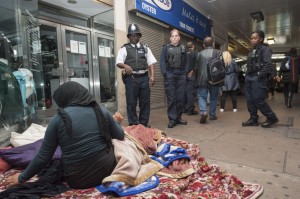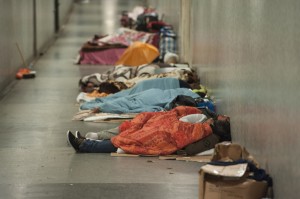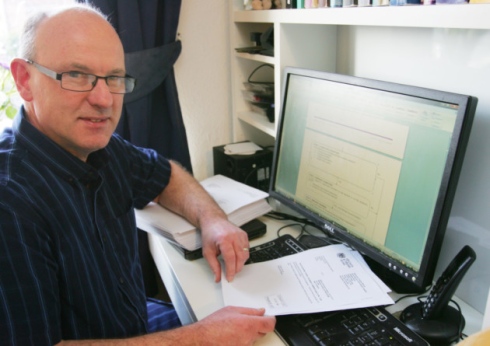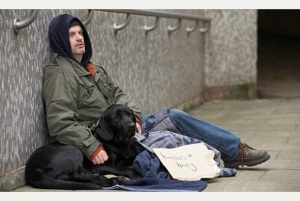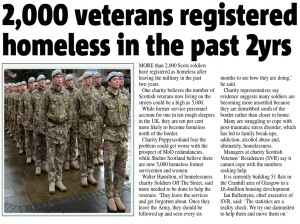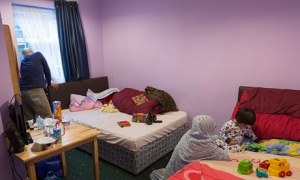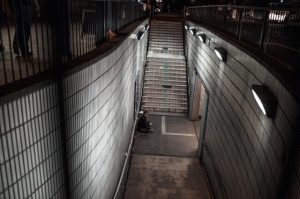New research also shows over a third of the 2,090 families living in B&Bs have been doing so beyond the legal limit of six weeks.
More families with children are living in bed and breakfast accommodation in England than for almost 10 years. There are 2,090 families living in this form of emergency housing, an increase of 8% on 2012, government figures show.
Homelesness legislation stipulates that bed and breakfasts should be avoided for families, but their use has been rising since 2009. The legislation also states that families should be in B&Bs for no longer than six weeks, but 760 of the 2,090 families had been living there longer at the end of June – a 10% increase on last year, according to research published by the housing charity Shelter.
More than 43,000 homeless households with children were living in other forms of emergency temporary accommodation – usually privately rented short-term flats, which are expensive – an increase of 9% on last year. Homeless families in this kind of emergency accommodation fell between 2005 and 2010, after a government commitment to halve the number by 2010, but they have been rising again since June 2011.
Research by Shelter, based on interviews with 25 families who were, or had recently been, living in B&Bs, found that most felt unsafe. Almost half said their children had witnessed disturbing incidents, including threats of violence, sexual offences and drug use and dealing.
“One of the reasons we left was one of the residents trying to sell us crack cocaine,” a mother of three told the charity.
Most of the families lived in one room, and half said their children were sharing beds with their parents or siblings. Twenty-two said it was very difficult to find a safe place for their children to play, 12 had to share kitchen facilities, and three had no cooking facilities. One family reported sharing a cooker and a fridge with 22 other people.
Two-thirds of the families interviewed said their children had no table to eat on, more than half had to share a bathroom or toilet with strangers, and 10 families shared with seven or more other people. Schoolchildren found it difficult to do homework.
Most said their children’s health had suffered through living in B&Bs. “It’s so hard to give him a balanced diet as it’s impossible to make proper meals here,” a mother said.
“I try to cook because it’s cheaper. but I can’t put stuff in the fridge because it’s too small so I can’t use fresh stuff. I’m using stuff in tins all the time,” said another.
The cramped nature of the accommodation was difficult for most families. “It was so unbearable eating on our beds, we had to go out a bit and obviously that is very expensive,” a mother said. A father told the charity: “You have 12 square metres, and have to spend all your time in this space. We didn’t want to open the door because the house was full of strangers.”
Campbell Robb, the chief executive of Shelter, said: “Our shocking findings have uncovered the shameful conditions homeless children will be living in this Christmas. Parents and children sharing beds, children forced to eat on the floor and being threatened with violence in the place they live. This shouldn’t be happening in 21st-century Britain.”
The housing minister, Kris Hopkins, said: “We’ve given councils nearly £1bn to tackle homelessness and to support people affected by the welfare reforms, so I am very clear that they should be fully able to meet their legal responsibility to house families in suitable accommodation.
“Families should only be placed in bed and breakfast accommodation in an emergency, and even then for no more than six weeks. The funding we’ve given, and our change in the law to enable families to be placed in suitable, affordable private rented homes, means there is no excuse for councils to breach this.”

